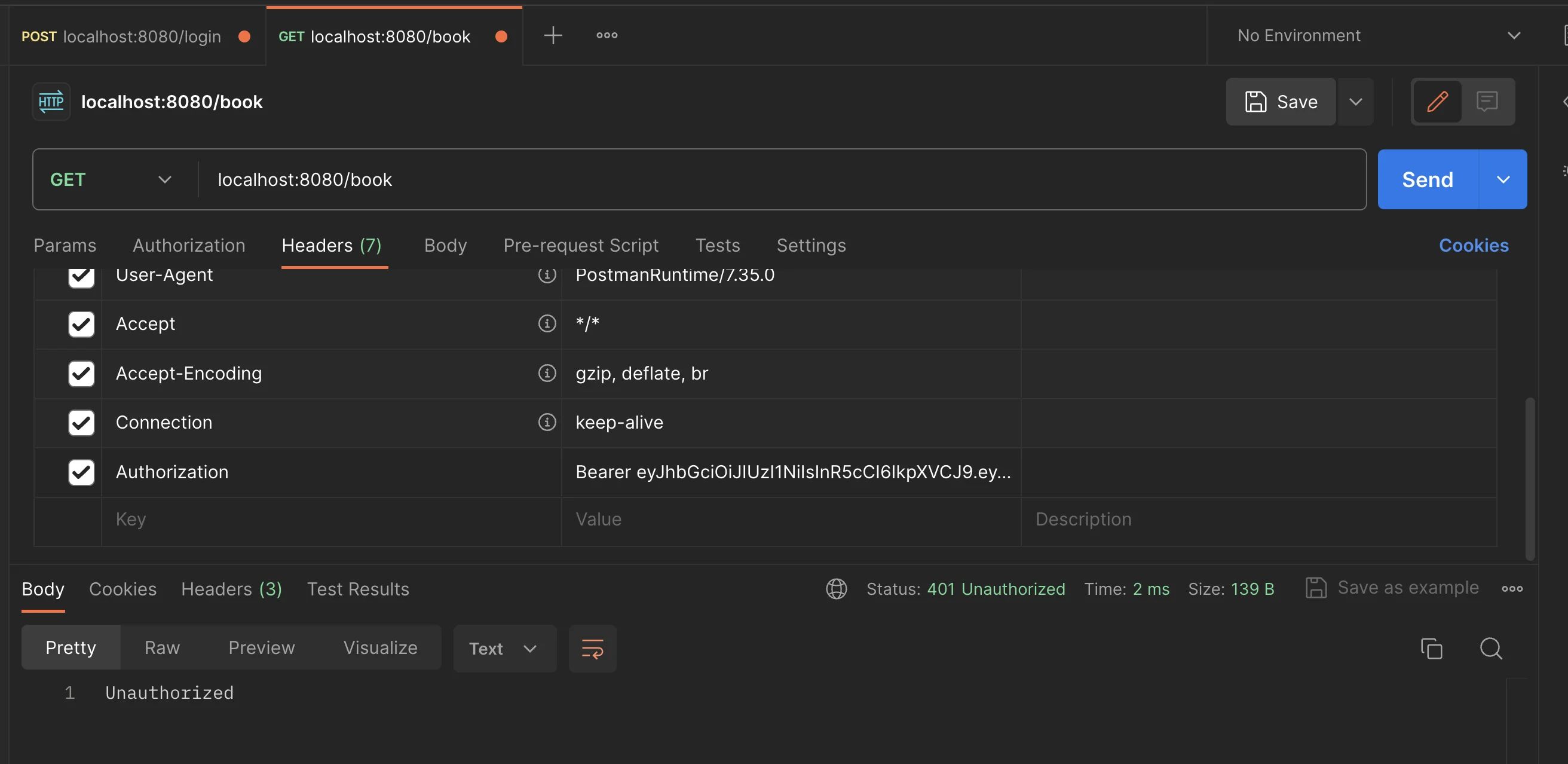รู้จักกับ Middleware
Middleware คืออะไร ?
Ref: https://docs.gofiber.io/category/-middleware
Middleware คือ concept ของการเพิ่ม function คั่นกลางระหว่าง application เพื่อใช้สำหรับการเข้าถึง / modified request - response ของ request-response cycle เพื่อส่งต่อไปยัง function หลักต่อไปอีกที
ไอเดียใหญ่ๆของพวก Middleware คือ
- ใช้สำหรับตรวจสอบ request / response เข้ามาก่อนได้ว่าถูกต้องหรือไม่ (เช่น เช็คว่า user login หรือไม่, user ถูก role หรือไม่)
- ใช้สำหรับการเพิ่มข้อมูลบางอย่างคู่กับ request / response ไปเพื่อให้สามารถใช้กับ service function ที่เรียกคู่กันได้ (เช่น ส่งข้อมูล user เข้าไปคู่กับใน request เพื่อให้ทุก service function สามารถเรียกใช้งานได้)
- เพื่อทำการเพิ่มเติมของบางอย่างระหว่างทางเข้าไป โดยใช้ข้อมูลจาก request / response นั้น (เช่น Log, Cache)
ซึ่งใน Fiber เองก็ได้เตรียม middleware เอาไว้ให้แล้วเช่นกัน ทำให้เราสมารถเพิ่ม middleware function ไปได้ (มาดูตัวอย่างผ่าน Session นี้กัน)
ตัวอย่างการใช้ Middleware
Note
- เคสนี้เป็นการเพิ่ม log เข้าไปใน middleware
package main
import (
"fmt"
"time"
"github.com/gofiber/fiber/v2"
)
// loggingMiddleware logs the processing time for each request
func loggingMiddleware(c *fiber.Ctx) error {
// Start timer
start := time.Now()
// Process request
err := c.Next()
// Calculate processing time
duration := time.Since(start)
// Log the information
fmt.Printf("Request URL: %s - Method: %s - Duration: %s\n", c.OriginalURL(), c.Method(), duration)
return err
}
func main() {
app := fiber.New()
// Use the logging middleware
app.Use(loggingMiddleware)
// Setup routes
app.Get("/", func(c *fiber.Ctx) error {
return c.SendString("Hello, World!")
})
app.Listen(":8080")
}
Middleware และการ login
Note
- เพิ่มเติมเส้น Login เข้ามา
- เพิ่ม middleware ให้เช็คจาก token ก่อนว่า ถูกคนหรือไม่ ? (ผ่าน jwt token)
- ถ้าถูกคนและถูก role = ถึงจะสามารถ access เข้า api ได้
go get -u github.com/gofiber/jwt/v2
main.go
package main
import (
"time"
"github.com/gofiber/fiber/v2"
"github.com/gofiber/jwt/v2"
"github.com/golang-jwt/jwt/v4"
)
func main() {
app := fiber.New()
// JWT Secret Key
secretKey := "secret"
// Login route
app.Post("/login", login(secretKey))
// JWT Middleware
app.Use(jwtware.New(jwtware.Config{
SigningKey: []byte(secretKey),
}))
// Protected Book routes
app.Get("/book", getBooks)
app.Get("/book/:id", getBook)
app.Post("/book", createBook)
app.Put("/book/:id", updateBook)
app.Delete("/book/:id", deleteBook)
app.Listen(":8080")
}
// Dummy user for example
var user = struct {
Email string
Password string
}{
Email: "[email protected]",
Password: "password123",
}
func login(secretKey string) fiber.Handler {
return func(c *fiber.Ctx) error {
type LoginRequest struct {
Email string `json:"email"`
Password string `json:"password"`
}
var request LoginRequest
if err := c.BodyParser(&request); err != nil {
return err
}
// Check credentials - In real world, you should check against a database
if request.Email != user.Email || request.Password != user.Password {
return fiber.ErrUnauthorized
}
// Create token
token := jwt.New(jwt.SigningMethodHS256)
// Set claims
claims := token.Claims.(jwt.MapClaims)
claims["name"] = "John Doe"
claims["admin"] = true
claims["exp"] = time.Now().Add(time.Hour * 72).Unix()
// Generate encoded token
t, err := token.SignedString([]byte(secretKey))
if err != nil {
return c.SendStatus(fiber.StatusInternalServerError)
}
return c.JSON(fiber.Map{"token": t})
}
}
Middleware กับการดึงค่าส่งต่อมา
Note
- เพิ่มเติมจากเคสก่อนหน้า โดยการแกะข้อมูล user ผ่าน jwt token และส่งข้อมูลออกมาผ่าน context ใน fiber
ที่ main.go
func login(secretKey string) fiber.Handler {
return func(c *fiber.Ctx) error {
type LoginRequest struct {
Email string `json:"email"`
Password string `json:"password"`
}
var request LoginRequest
if err := c.BodyParser(&request); err != nil {
return err
}
// Check credentials - In real world, you should check against a database
if request.Email != user.Email || request.Password != user.Password {
return fiber.ErrUnauthorized
}
// Create token
token := jwt.New(jwt.SigningMethodHS256)
// Set claims
claims := token.Claims.(jwt.MapClaims)
claims["email"] = user.Email
claims["role"] = "admin" // example role
claims["exp"] = time.Now().Add(time.Hour * 72).Unix()
// Generate encoded token
t, err := token.SignedString([]byte(secretKey))
if err != nil {
return c.SendStatus(fiber.StatusInternalServerError)
}
return c.JSON(fiber.Map{"token": t})
}
}
// UserData represents the user data extracted from the JWT token
type UserData struct {
Email string
Role string
}
// userContextKey is the key used to store user data in the Fiber context
const userContextKey = "user"
// extractUserFromJWT is a middleware that extracts user data from the JWT token
func extractUserFromJWT(c *fiber.Ctx) error {
user := &UserData{}
// Extract the token from the Fiber context (inserted by the JWT middleware)
token := c.Locals("user").(*jwt.Token)
claims := token.Claims.(jwt.MapClaims)
fmt.Println(claims)
user.Email = claims["email"].(string)
user.Role = claims["role"].(string)
// Store the user data in the Fiber context
c.Locals(userContextKey, user)
return c.Next()
}
ที่ func main ของ main.go ให้เรียกใช้
func main() {
app := fiber.New()
// JWT Secret Key
secretKey := "secret"
// Login route
app.Post("/login", login(secretKey))
// JWT Middleware
app.Use(jwtware.New(jwtware.Config{
SigningKey: []byte(secretKey),
}))
// Middleware to extract user data from JWT
app.Use(extractUserFromJWT)
// code เรียก router fiber เหมือนเดิม
}
ที่ book.go (ที่เรียก router แต่เดิม)
- ยกตัวอย่างกับ getBooks
func getBooks(c *fiber.Ctx) error {
// Retrieve user data from the context
user := c.Locals(userContextKey).(*UserData)
// Use the user data (e.g., for authorization, custom responses, etc.)
fmt.Printf("User Email: %s, Role: %s\n", user.Email, user.Role)
return c.JSON(books)
}
Middleware กับการกั้นสิทธิบาง API
Ref: https://docs.gofiber.io/guide/grouping
- ทำการแยกกลุ่มการตรวจสอบโดยจะทำเพียงแค่บาง API เท่านั้น = ใช้ concept group API ของ fiber ได้
main.go
// isAdmin checks if the user is an admin
func isAdmin(c *fiber.Ctx) error {
user := c.Locals(userContextKey).(*UserData)
if user.Role != "admin" {
return fiber.ErrUnauthorized
}
return c.Next()
}
func main() {
app := fiber.New()
// JWT Secret Key
secretKey := "secret"
// Login route
app.Post("/login", login(secretKey))
// JWT Middleware
app.Use(jwtware.New(jwtware.Config{
SigningKey: []byte(secretKey),
}))
// Middleware to extract user data from JWT
app.Use(extractUserFromJWT)
// Group routes under /book
bookGroup := app.Group("/book")
// Apply the isAdmin middleware only to the /book routes
bookGroup.Use(isAdmin)
// Now, only authenticated admins can access these routes
bookGroup.Get("/", getBooks)
bookGroup.Get("/:id", getBook)
bookGroup.Post("/", createBook)
bookGroup.Put("/:id", updateBook)
bookGroup.Delete("/:id", deleteBook)
app.Listen(":8080")
}
ผลลัพธ์จากการใส่ role อื่นเข้าไป
